The International Telecommunication Union (ITU) hosted its annual Global Symposium for Regulators (GSR-24) in Kampala, Uganda from July 1 to 4, 2024, at the Speke Resort and Convention Center.
Themed "Regulation for Impact," GSR-24 brought together regulators, policymakers, and digital stakeholders from across the globe. The symposium offered a platform for knowledge exchange through thematic sessions focusing on critical issues in the rapidly evolving digital landscape.
The opening day featured a meeting of the Regional Regulatory Organizations and Digital Regulation Network (DRN). This session focused on accelerating sustainable digital transformation through collaborative approaches to digital policy, regulation, and governance across various economic sectors and borders. A key item on the agenda was the development of harmonized broadband mapping systems.
The DRN meeting also marked a significant milestone by celebrating its first successful year of operation. Participants took the opportunity to highlight the network's achievements, including knowledge sharing, capacity-building activities, and contributions to ITU-D Study Groups. The interactive workshops were also recognised as a valuable component of the DRN's efforts, underscoring the progress made in the past year.
Another significant event on the first day was the ITU GSR Heads of Regulators Executive Roundtable. This high-level discussion, which was a focal point of the day, concentrated on developing open, flexible, and risk-based governance structures for transformative technology. The roundtable featured rich interventions and discussions, highlighting the weighty challenges facing regulators in today's digital age.
Opening Ceremony at GSR-24
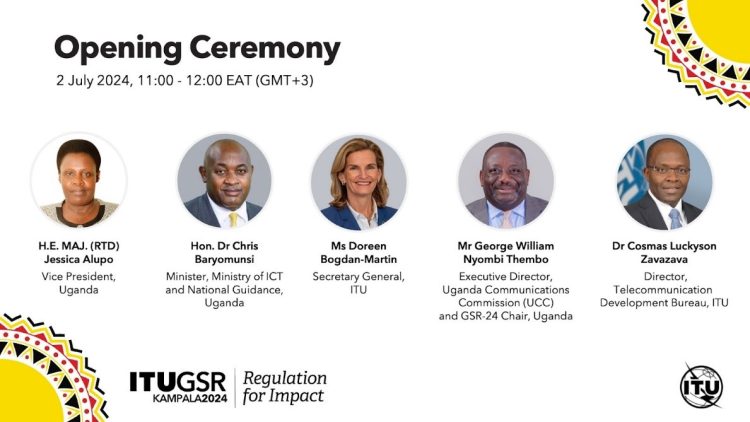
Day 2 of GSR-24 involved the opening ceremony led by a panel of stakeholders, including H.E. MAJ (RTD) Jessica Alupo (Vice President, Uganda), Hon. Dr Chris Baryomunsi (Minister, Ministry of ICT and National Guidance, Uganda), Ms Doreen Bogdan-Martin (Secretary General, ITU), Mr George William Nyombi Thembo (Executive Director, UCC, and GSR-24 chair, Uganda), and Dr Cosmas Luckyson Zavazava (Director, Telecommunications Development Bureau, ITU).
H.E. Jessica Alupo, representing President Yoweri Museveni, officially opened the symposium. In her address, she emphasised, "As regulators of the ICT sector, your mandate is to promote the sector's contribution to the economic well-being of the people." She added, "I urge you to promote a regulatory environment prioritising innovation, safety, privacy and the rights of digital technology users."
Ms Doreen Bogdan-Martin highlighted the urgent need to bridge the digital divide, noting that 2.6 billion globally still lack internet access. She stated, "We need to make the race to regulation a race to the top and not a race to the bottom." Bogdan-Martin called for accelerated efforts to bring these unconnected populations online, describing it as "both an economic necessity and a moral imperative."
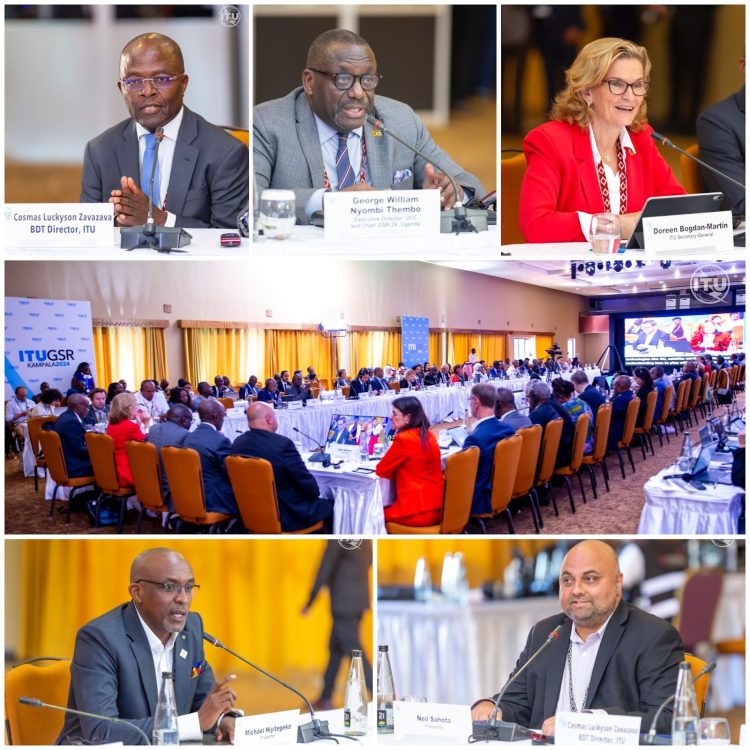
Dr. Cosmas Zavazava stressed the importance of collaboration: "Collaboration entails two-way frequent and dynamic communication among governments, the private sector, civil society, telecommunications regulators, and the average citizen." He emphasised the need for "formulating policies that are inclusive, and making significant investments in building the infrastructure."
Dr Chris Baryomunsi, welcomed delegates to the "Pearl of Africa" and highlighted Uganda's commitment to digital transformation. He stated, "The government of Uganda has prioritised digital transformation, as expressed in our national development plan number three, and also as a ministry as a sector, we are guided by a digital transformation roadmap."
George William Nyombi Thembo provided context for the symposium's importance, noting, "Access to the internet is no longer a luxury, it has become an absolute necessity. Denial of which means denial of essential services like education, medical care, and financial inclusion to mention but a few."
The symposium discussed key topics such as artificial intelligence governance, space technologies, and international cooperation in ICT regulation. Participants worked towards developing best practice guidelines for regulating emerging technologies to maximise their positive impact while minimising risks.
 From left: Dr Cosmas Zavazava (ITU) and Mr George William Nyombi Thembo (UCC)
From left: Dr Cosmas Zavazava (ITU) and Mr George William Nyombi Thembo (UCC)
The primary outcome of day 2 was the launch of the Best Practice Guidelines, by Dr. Cosmas Luckyson Zavazava from ITU and Mr George William Nyombi Thembo, the executive director of UCC.
Best Practice Guidelines are instrumental in shaping national policies, strategies and regulatory frameworks that foster investment, innovation and growth in the ICT sector. The ITUG SR-24 Best Practice Guidelines chart the course of transformative technologies for positive impact, outlining the challenges, opportunities, key policy and regulatory measures, and guiding principles for positive and inclusive impact in 6 languages.
Network of women in tech
On Day 3 of GSR-24, the Network of Women (NoW) session brought together influential voices to address the persistent gender gap in the ICT sector. Participants engaged in spirited discussions examining the obstacles that continue to hinder women’s advancement in technology-related fields, especially at the highest levels of policymaking. The session highlighted the challenges and explored solutions and mechanisms to boost women’s participation in these crucial roles.
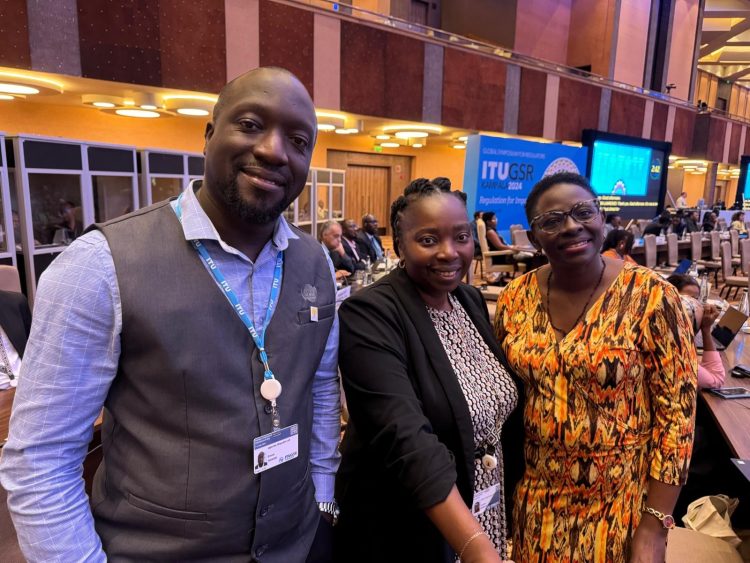 From left: Enock Wakabi (UCC), Dr Caroline Wamala (SPIDER), and Priscilla Namugerwa (UCC) at GSR-24
From left: Enock Wakabi (UCC), Dr Caroline Wamala (SPIDER), and Priscilla Namugerwa (UCC) at GSR-24
ITU Sec Gen Ms Bogdan-Martin expressed her inspiration from the stories of women’s leadership shared during the event. She called for renewed efforts to make 2025 a milestone year for gender equality, urging stakeholders to take concrete actions to close the gender divide in the digital sphere.
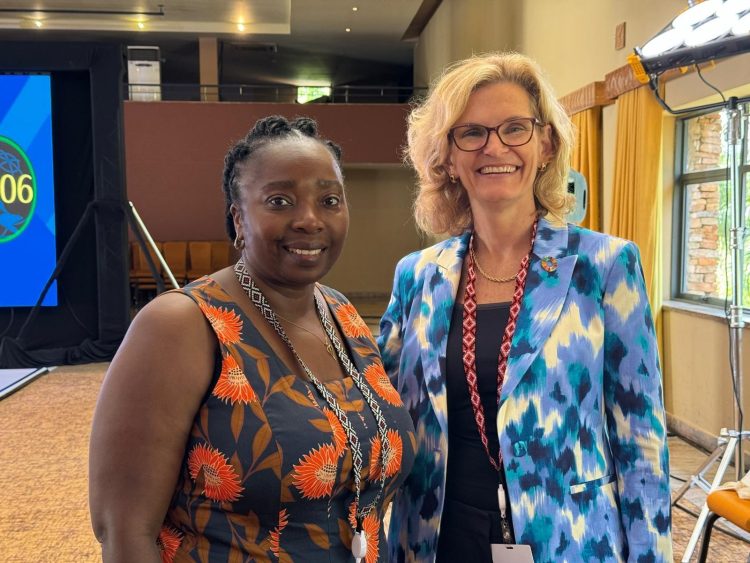 SPIDER director Dr Caroline Wamala (left) and ITU secretary general Ms Doreen Bogdan-Martin (right) at GSR-24
SPIDER director Dr Caroline Wamala (left) and ITU secretary general Ms Doreen Bogdan-Martin (right) at GSR-24
Other announcements at GSR-24:
- Africa-BB-Maps, the European Commission-supported initiative for Africa's National Broadband Mapping Systems, will assist in establishing broadband mapping systems to promote investment and digital transformation in Africa. With a budget of EUR 15 million spread over four years, the initiative would initially serve 11 countries: Benin, Botswana, Burundi, Côte d'Ivoire, Ethiopia, Kenya, Malawi, Nigeria, Uganda, Zambia, and Zimbabwe.
- The Digital Skills Forum, a flagship event to address the most pressing demands for universal digital skills, will be held in Manama, Kingdom of Bahrain, from September 17 to 19, 2024. The Telecommunications Regulatory Authority (TRA) of the Kingdom of Bahrain will host the event, which is organised by the ITU Telecommunication Development Bureau.
- Saudi Arabia's Communications, Space and Technology Commission is to hold the Global Symposium for Regulators in 2025.


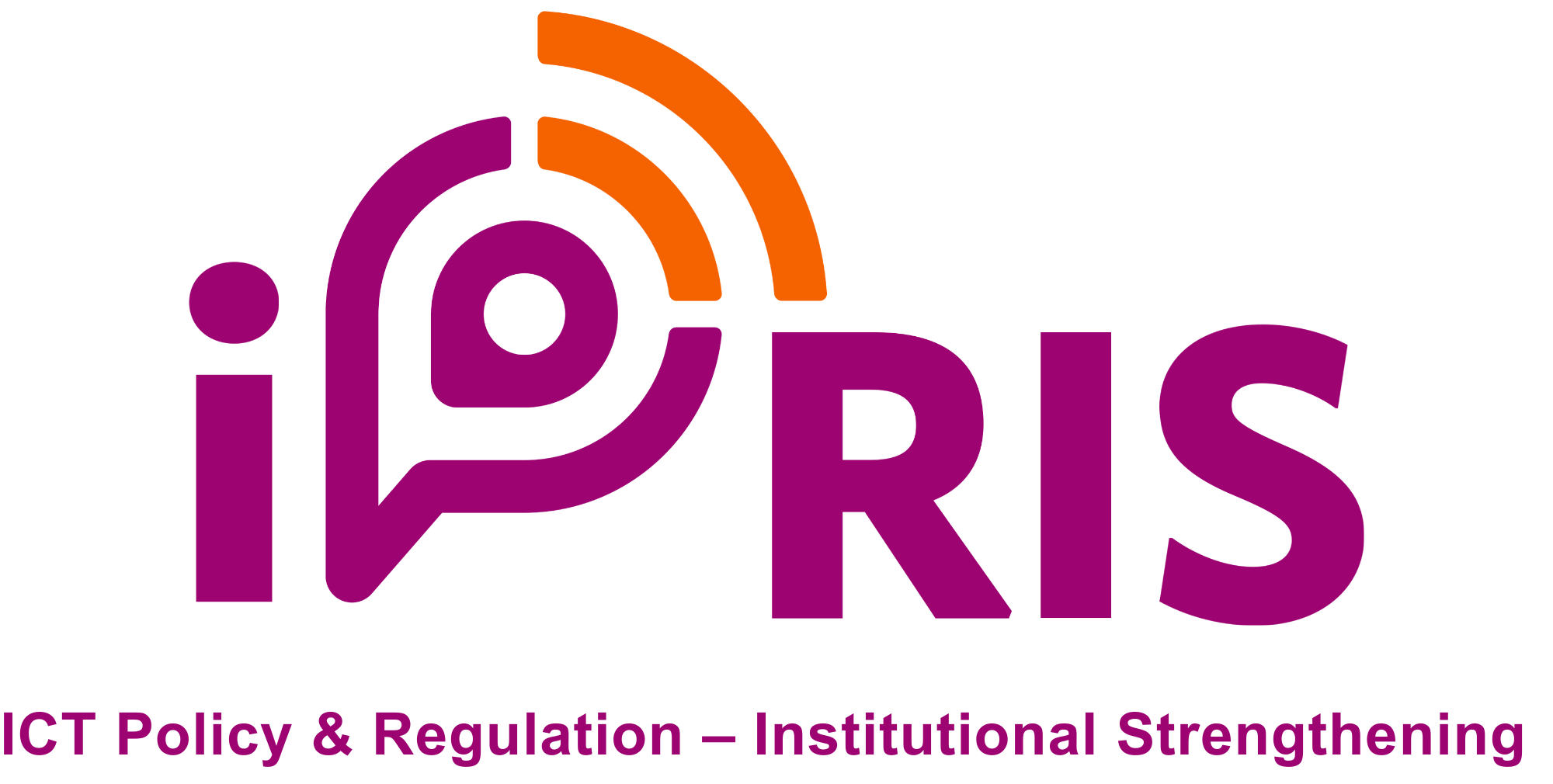

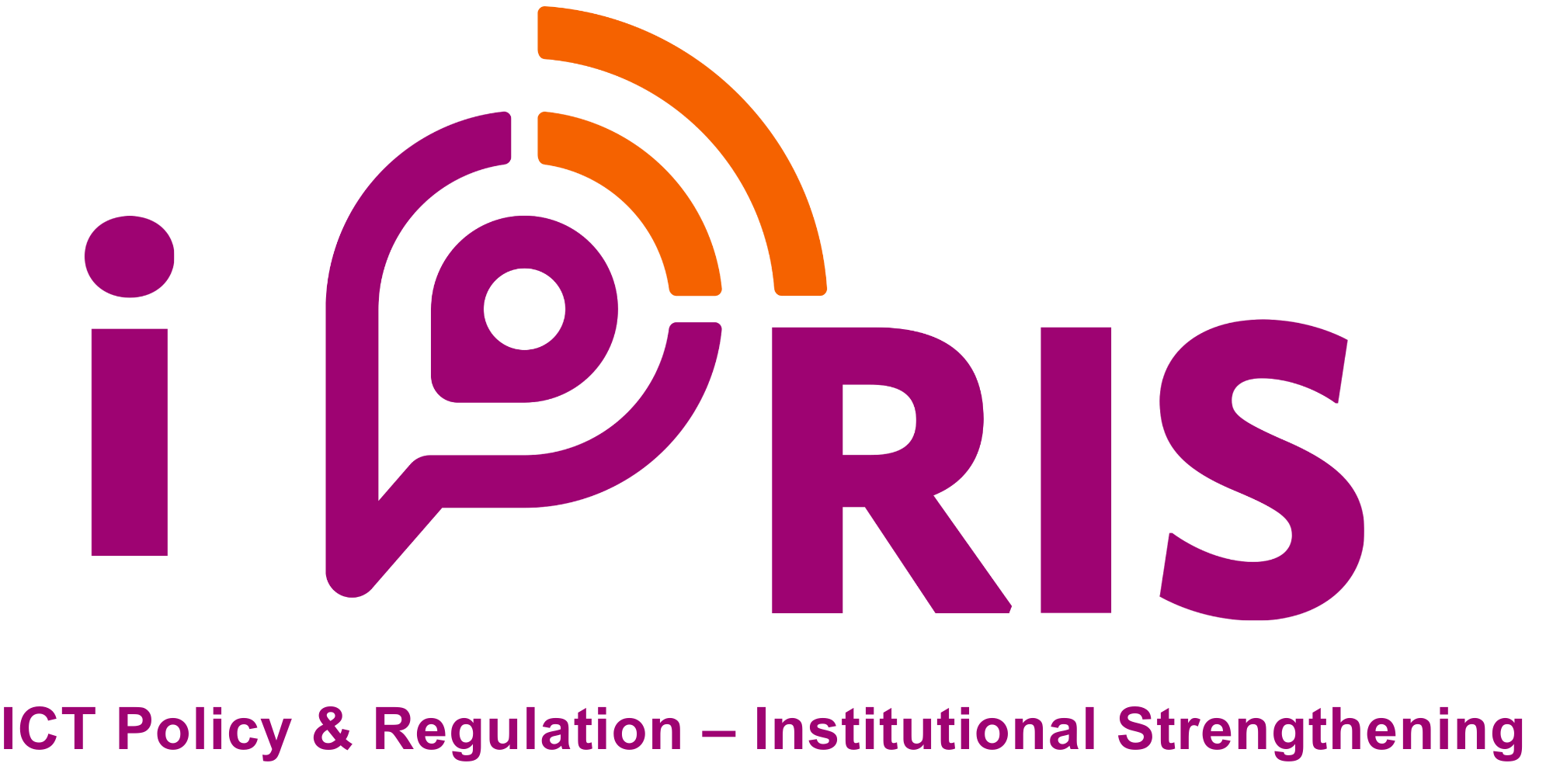
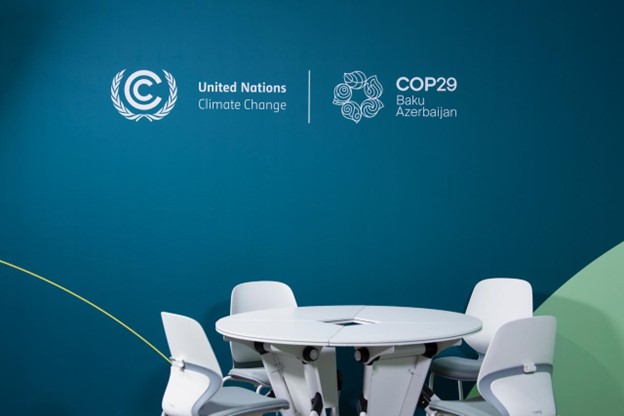
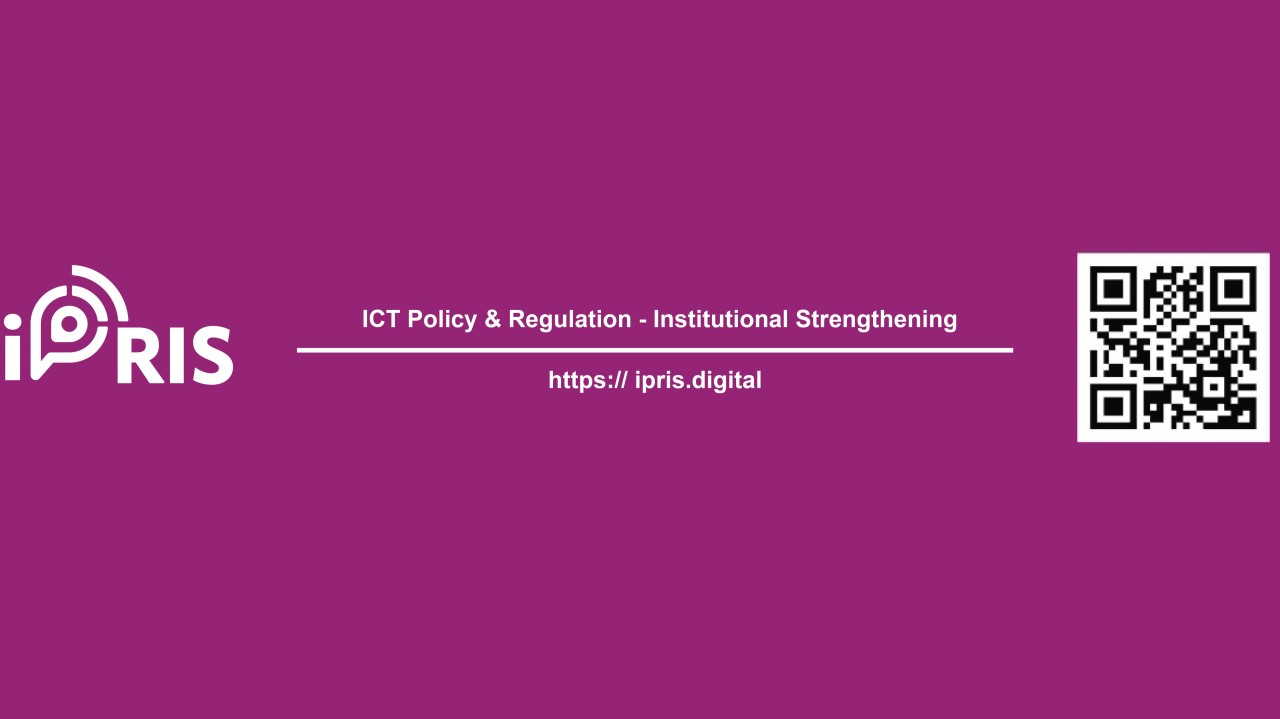












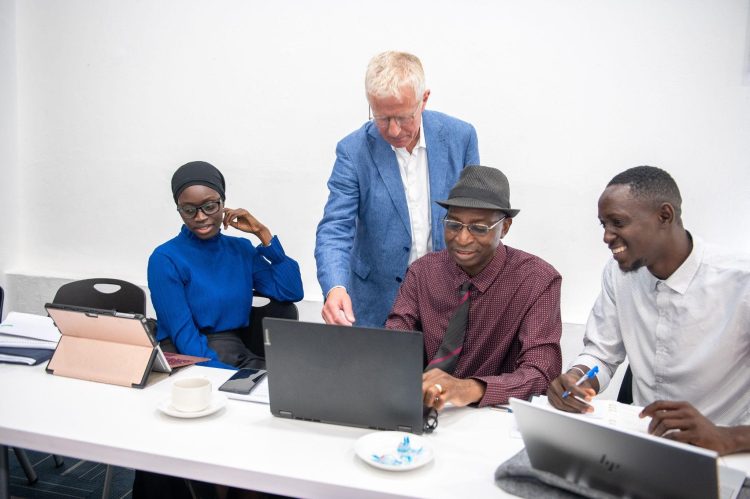


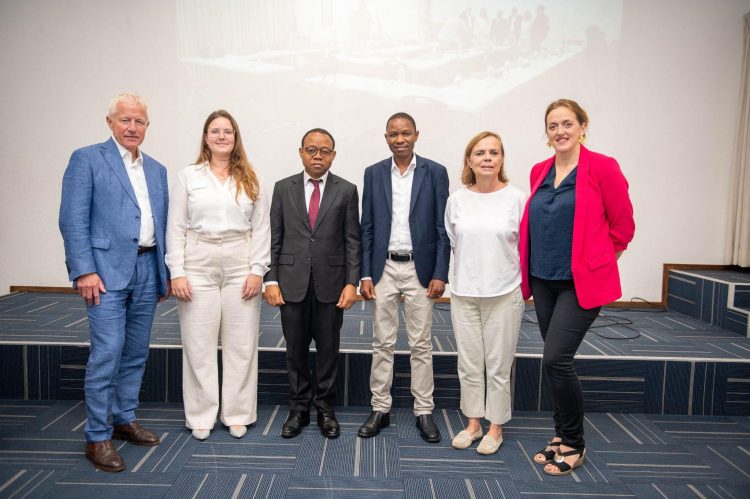
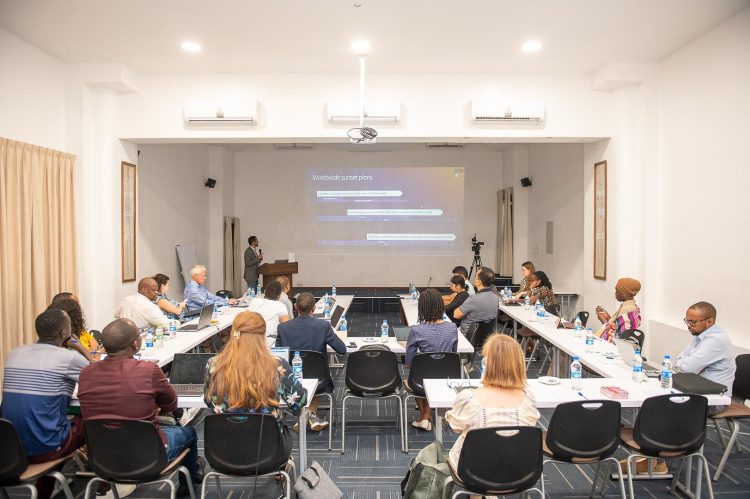
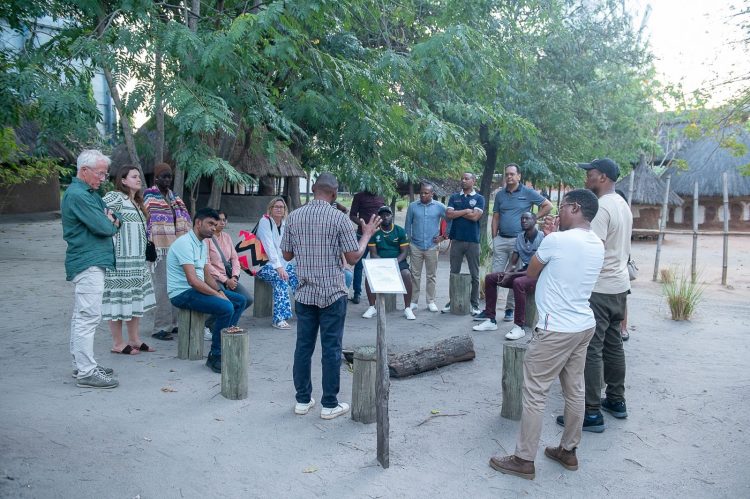
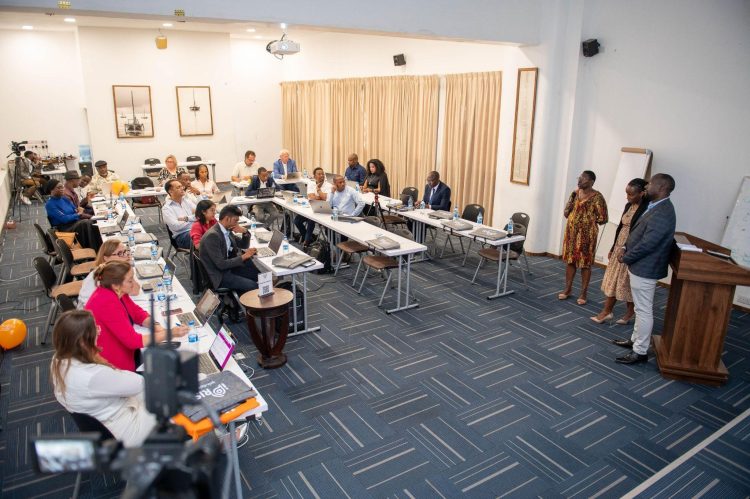
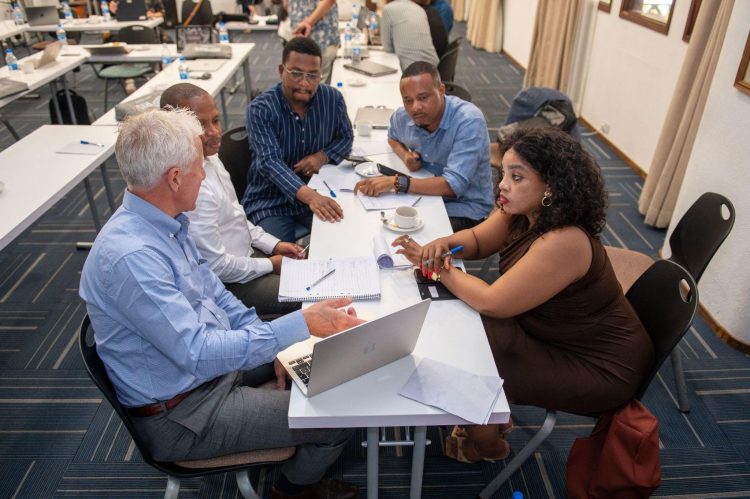

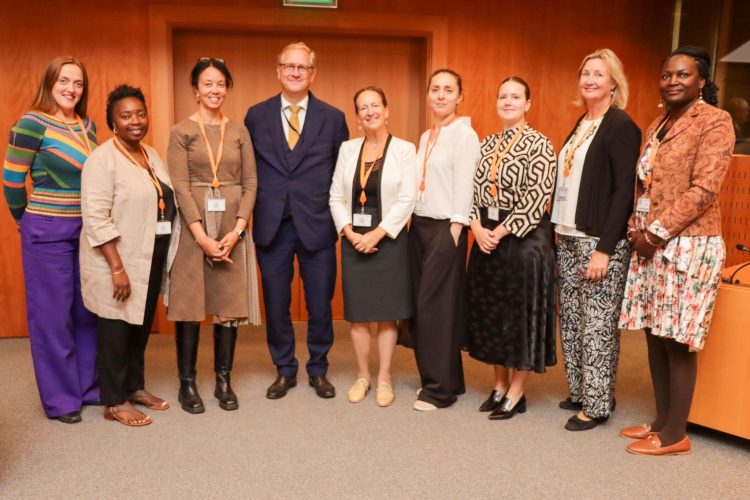
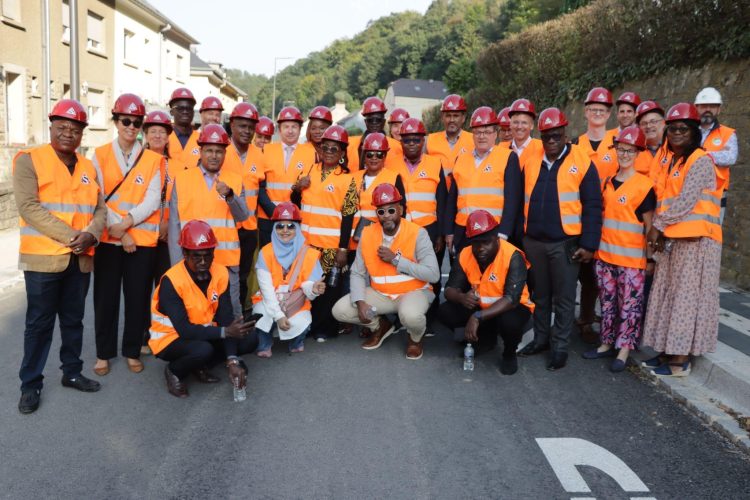
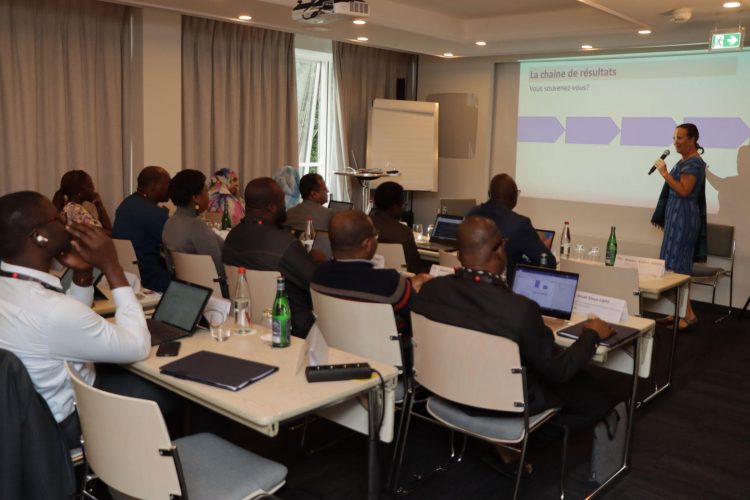
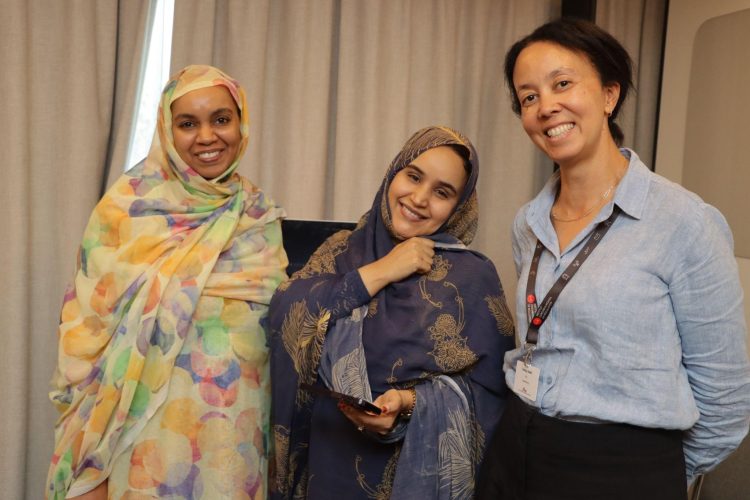






 From left: Dr Cosmas Zavazava (ITU) and Mr George William Nyombi Thembo (UCC)
From left: Dr Cosmas Zavazava (ITU) and Mr George William Nyombi Thembo (UCC) From left: Enock Wakabi (UCC), Dr Caroline Wamala (SPIDER), and Priscilla Namugerwa (UCC) at GSR-24
From left: Enock Wakabi (UCC), Dr Caroline Wamala (SPIDER), and Priscilla Namugerwa (UCC) at GSR-24 SPIDER director Dr Caroline Wamala (left) and ITU secretary general Ms Doreen Bogdan-Martin (right) at GSR-24
SPIDER director Dr Caroline Wamala (left) and ITU secretary general Ms Doreen Bogdan-Martin (right) at GSR-24



